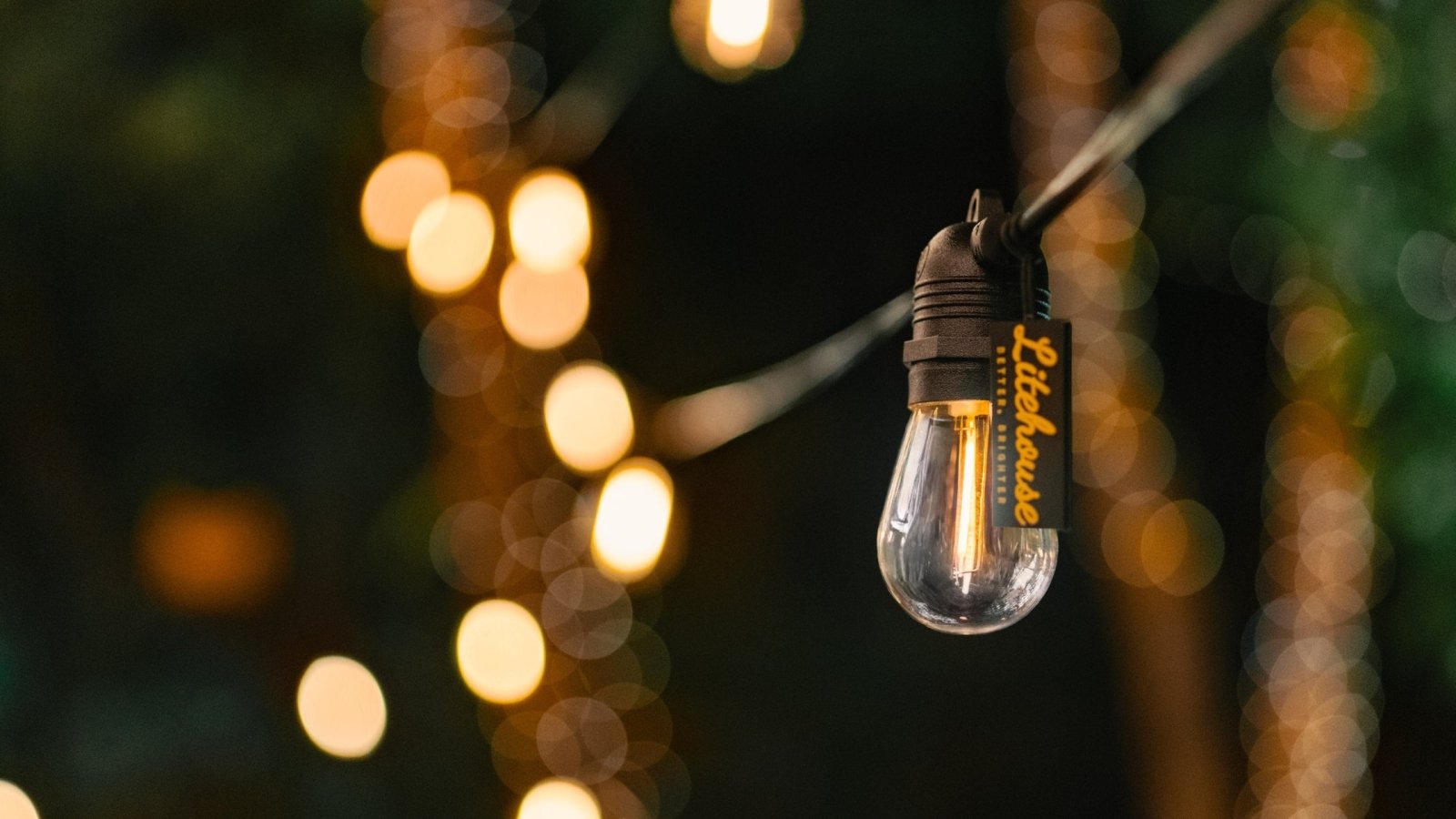Choosing the right solar light for your outdoor space can transform your garden into a welcoming haven. With so many options available, it can be challenging to know where to start. Whether you're looking to create a cosy atmosphere for evening gatherings or add a touch of magic to your garden, understanding the key features of solar lights is essential.
In this article, we'll guide you through the important factors to consider when selecting solar lights. From energy efficiency to ease of installation, we'll cover everything you need to make an informed decision. By the end, you'll have a clear idea of what to look for, ensuring your garden shines brightly and beautifully.
Key Takeaways
- Understand the different types of solar lights available, such as garden lights, wall lights, string lights, and decorative lights, to choose the one that best suits your needs.
- Consider the brightness and light output, battery life, and solar panel quality when selecting solar lights to ensure optimal performance and longevity.
- Opt for durable and weather-resistant materials to withstand various outdoor conditions and extend the lifespan of your solar lights.
- Proper installation is crucial for efficiency; place solar panels in direct sunlight, secure the lights firmly, and follow the step-by-step guide for assembly and placement.
- Regular maintenance, including cleaning the panels and checking for obstructions, ensures maximum energy absorption and consistent performance.
In today's fast-paced world, creating a serene and inviting atmosphere at home has never been more important. Litehouse, a rising star in South Africa's lighting industry, aims to lead the way in ambience lighting. Renowned for our innovative, high-end, decorative lighting, we focus on enhancing your living spaces, both indoors and outdoors. Let's explore what sets us apart and how to make the most of Litehouse products.

Understanding Solar Light Technology
Understanding the different types of solar lights can help you make the best choice for your needs.
Solar Garden Lights
Solar garden lights are perfect for brightening pathways and garden beds. They come in various styles, from classic lanterns to modern spikes. For garden enthusiasts, these lights offer eco-friendly options to showcase floral displays at night.
Solar Wall Lights
These lights are ideal for illuminating patio walls, fences or entrances. They're usually brighter than garden lights and often come with motion sensors for added security.
Solar String Lights
Solar string lights add a whimsical touch to backyards and patios. They’re great for parties and come in various designs, like fairy lights and globe lights. Simply hang them up, and let the solar panel do the rest.
Decorative Solar Lights
For those looking to make a statement, decorative solar lights offer unique designs and patterns. Perfect for creating focal points in your garden.

How Solar Lights Work
Knowing how solar lights work helps you optimise their performance.
Energy Absorption
The solar panel absorbs sunlight and converts it into energy. This energy is stored in rechargeable batteries, ready to power the lights at night.
Automatic Activation
As the sun sets, a built-in sensor detects the decrease in light and automatically switches on the solar lights. This ensures your garden remains illuminated without manual intervention.
Installation
Installing solar lights is a breeze. Place the solar panel in a sunny spot for optimal energy absorption. Use ground stakes or wall mounts as needed, and you're good to go.
Step-by-Step Guide to Installing Solar Lights
- Choose Your Spot: Identify locations that receive direct sunlight for at least 6-8 hours daily.
- Assemble the Light: Follow the instructions to assemble your solar lights. Typically, this involves attaching the ground stake or wall mount.
- Position the Panel: Place the solar panel where it will get maximum sunlight.
- Secure the Light: Insert the ground stake firmly or mount it on a wall as per your light type.
- Test the Light: Wait until dusk to ensure your lights activate properly.
Tips for Maximising Solar Light Performance
- Regular Cleaning: Dust and dirt can block sunlight. Clean your solar panels monthly.
- Avoid Obstructions: Ensure no trees or structures cast shadows on your solar panel.
- Seasonal Adjustment: Angle your solar panel seasonally to capture maximum sunlight.

Key Factors to Consider When Choosing Solar Lights
Choosing the right solar lights significantly enhances the outdoor ambience, providing not only illumination but also aesthetic appeal. Let's delve into the key factors you should consider to make an informed decision.
Brightness and Light Output
Brightness determines the visibility and effectivity of your outdoor solar lights. Look for lumens when evaluating brightness. Lower lumens (15-30) work for pathways, while higher lumens (100+) are ideal for larger spaces, like gardens or patios. For instance, our Litehouse solar fairy lights usually emit a softer, warm glow, perfect for decorative purposes. On the other hand, compact solar garden lights offer a brighter output, ensuring safety and visibility.
Battery Life and Solar Panel Quality
Battery life and solar panel efficiency directly impact performance. Quality panels absorb more sunlight, extending illumination. Place the solar panel in an area with direct sunlight for at least 6-8 hours daily. Litehouse’s solar string lights often have robust battery systems, lasting up to 10 hours on a full charge. For better longevity, ensure the batteries are replaceable, and periodically check for any debris obstructing the panels.
Material and Durability
Material influences durability and longevity. Opt for weather-resistant and high-quality materials like stainless steel or heavy-duty plastic for outdoor solar lights. Our Litehouse solar garden lights are built to withstand various weather conditions, ensuring year-round functionality. Consider UV-resistant options to prevent colour fading. Regular maintenance including cleaning and inspections can significantly prolong the lifespan of your lights.
When you’re ready to make your purchase, check out Litehouse for a wide selection of high-end solar lights designed to enhance your outdoor space. Whether you’re looking for decorative lights, solar wall lights, or practical solar garden lights, Litehouse has you covered.
Popular Features in Solar Lights
Solar lights have become a trendy, efficient way to illuminate outdoor spaces. With so many options available, understanding popular features can help us make informed choices.
Dual Charging System: Sunlight or Type-C Charging Port
Solar lights with a dual charging system offer unparalleled convenience and flexibility. The primary method harnesses the power of sunlight, where the solar panel absorbs solar energy during the day and converts it into electricity to illuminate your space at night. However, the addition of a Type-C charging port ensures that your lights remain functional even during prolonged periods of cloudy weather or in shaded areas with limited sunlight exposure. This two-way rechargeable system not only guarantees continuous operation but also provides an efficient backup option. Whether you're relying on natural sunlight or quickly recharging through the Type-C port, this feature ensures your solar lights are always ready to brighten your outdoor spaces.
Adjustable Panels and Smart Controls
Adjustable panels allow us to optimise the exposure to sunlight, improving energy absorption and efficiency. By positioning the panels to catch maximum sunlight, we ensure that our solar garden lights function effectively even on cloudy days. Smart controls, accessible through mobile apps or remote controls, offer customisation options for brightness levels, lighting schedules, and modes. With smart controls, we can easily switch between different settings, making our outdoor spaces more adaptable to various occasions and moods.
When we think of transforming our outdoor spaces into charming, inviting havens, the first thing that comes to mind is lighting. Specifically, Litehouse, renowned for its innovative and premium decorative light solutions, makes outdoor lighting not just practical but enchanting. Let's delve into how Litehouse aims to stand out as South Africa’s top-rated ambience lighting brand.
Top Rated Solar Lights on the Market
Ambience lighting elevates the aesthetic appeal of any space, creating a warm, welcoming atmosphere that guests and homeowners alike adore. Decorative lights can significantly enhance outdoor areas, making them more functional and visually appealing. But how do you choose the right lights?
Understanding Solar Technology
Solar lights harness energy from the sun during the day and illuminate spaces after dark. This technology is environmentally friendly since it reduces the need for electricity produced by non-renewable sources.
Step-by-Step: Installing Solar Lights
- Choose the Location: Select a spot receiving direct sunlight for at least 6-8 hours daily for optimal performance.
- Mount Solar Panels: Secure panels where they can absorb the most sunlight.
- Install Light Fixtures: Attach lights to fences, walls, or posts as required.
- Initial Charge: Allow the solar panel to charge fully before first use.
- Test the Lights: Check functionality after sunset to ensure optimal placement.
Reviews of Budget-Friendly Options
For those on a budget seeking efficient lighting, several options stand out:
- Solar Wall Lights: Perfect for enhancing security and visibility around entryways.
- Decorative Solar Fairy Lights: Ideal for creative, enchanting décor.
- Basic Pathway Lights: Simple and functional for illuminating walkways.
Premium Solar Lights for Enhanced Performance
When performance and aesthetics are paramount, premium options offer superior quality:
- High-End Solar Garden Lights: Provide intense brightness and long battery life.
- Solar String Lights: Bring a touch of magic to outdoor spaces.
- Smart Solar Lights: Equipped with customisable features like remote control and timers.

Insights & Tips for Maximising Solar Light Performance
Maximising efficiency and longevity of solar lights involves strategic placement and maintenance:
- Direct Sunlight: Position panels in unobstructed sunlight.
- Regular Cleaning: Wipe solar panels frequently to remove dust and debris.
- Avoiding Shadows: Ensure no overhanging branches block light absorption.
Explore More with Litehouse
For more information and to explore a wide range of innovative, decorative solar lighting options, visit Litehouse.
Installation Tips for Maximum Efficiency
Installing solar lights correctly is essential for achieving maximum efficiency. Let's explore some key considerations to ensure your lighting serves you well.
Choosing the Optimal Location
Solar lights need direct sunlight to operate efficiently. Place them in areas where they receive at least six hours of sunlight daily. Shaded spots can drastically reduce their performance. For example, positioning your solar garden lights away from tall trees or buildings ensures they get enough sunlight during the day.
Assess the purpose of your lighting to determine the best location. For instance, solar wall lights should be placed at entryways or pathways for maximum utility, whereas decorative lights like solar string lights might be suited for patios or garden areas to create a pleasant ambience.
Installation Best Practices
Follow manufacturer guidelines when installing solar lights for the best results. Firstly, ensure the solar panels are free from dust and debris. Clean panels improve energy absorption. Regular maintenance keeps your lights running efficiently.
Secure the solar lights firmly to avoid damage from wind or other elements. For outdoor solar lights, use sturdy fixtures that can withstand weather conditions. If installing on harder surfaces, consider using anchors or screws to hold the lights in place.
When setting up high-end solar lights equipped with motion sensors, ensure they’re angled correctly to capture movement in the desired area. Adjust the sensors and test their sensitivity to ensure they're working as intended.
For more information on premium and innovative solar lighting solutions, visit Litehouse.
Maintenance and Care
Proper maintenance keeps our solar lights performing efficiently and prolongs their lifespan. Regular care ensures they provide consistent lighting, particularly in outdoor settings.
Routine Cleaning and Care
Solar panels accumulate dirt and debris, impacting their ability to absorb sunlight. Cleaning these panels with a damp cloth every fortnight, or whenever visibly dirty, keeps them in optimal condition. Ensure the lights themselves remain free of dust and grime. If applicable, use a mild soap solution for stubborn spots, avoiding any harsh chemicals that may damage the surface.
Inspecting batteries once a year ensures they're still holding charge well. For those with replaceable batteries, such as solar lights outdoor and high-end solar lights, consider swapping them out if performance dips. Tighten loose screws or fittings to prevent lights from toppling or shifting.
Troubleshooting Common Issues
Sometimes, solar lights may not function as expected. Check the following areas to identify potential issues:
- Insufficient Sunlight: Ensure solar panels are exposed to direct sunlight. Shaded areas reduce efficiency.
- Dirty Panels: Clean any dirt from the panels. Residue limits sunlight absorption.
- Battery Issues: If the light dims or fails, check the battery. Replace if it's old or damaged.
- Sensor Malfunction: For lights with motion sensors, verify the sensor isn't obstructed or dirty.
Addressing these common problems ensures our lights remain reliable and bright.
For more information, visit Litehouse.
Conclusion
Choosing the right solar light involves considering various factors like technology brightness battery life and features. By selecting high-quality options from Litehouse we can enhance our outdoor spaces with reliable and efficient lighting. Proper installation and routine maintenance are key to ensuring long-term performance. With a variety of solar light options Litehouse stands out as a top-rated brand in South Africa for ambience lighting. Let's make our outdoor areas shine brilliantly with the right solar lights.
Frequently Asked Questions
Why is it important to select the right solar lights for my outdoor spaces?
Selecting the right solar lights can significantly enhance your outdoor ambience, improve safety, and ensure efficient lighting. The correct choice will also maximise energy efficiency and longevity.
What factors should I consider when choosing solar lights?
Consider the technology, brightness, battery life, and additional features like motion sensors. These factors impact the performance and suitability of the solar lights for your specific needs.
How do I install solar lights for optimal efficiency?
Install your solar lights in well-lit locations where they can receive maximum sunlight. Ensure they are positioned properly to cover the desired area and are securely mounted.
How can I maintain my solar lights effectively?
Routine cleaning of solar panels and lights is essential. Inspect batteries annually and troubleshoot common issues such as insufficient sunlight or sensor malfunctions to maintain performance.
How do I clean the solar panels and lights?
Use a damp cloth to wipe off dust and debris from the solar panels and lights regularly. This helps maintain their efficiency by ensuring they receive maximum sunlight.
How often should I inspect the batteries of my solar lights?
It’s recommended to inspect the batteries at least once a year. Replace them if they show signs of wear or if the lights are not performing as expected.
What should I do if my solar lights are not working properly?
Check for insufficient sunlight, clean the









Leave a comment
This site is protected by reCAPTCHA and the Google Privacy Policy and Terms of Service apply.